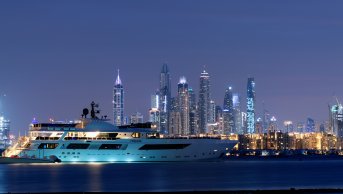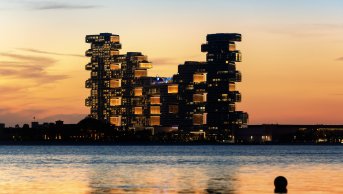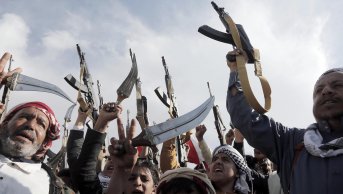Carbon Offsetting Could Signify A New Dawn for the Gulf’s Economy and Environment

What it is and why does it matter
The Gulf region embracing carbon offsetting as a key element in its quest for a more sustainable and diversified economy. By establishing carbon markets and embarking on carbon offsetting initiatives, these countries are attracting foreign investment in green technologies and fostering new international partnerships, enhancing their economic postures.
This engagement in carbon offsetting allows Gulf nations to align with global commitments like the Paris Agreement and showcases their commitment to mitigating the negative impact of climate change. The strategic approach adopted by the Gulf countries exemplifies their dedication to harmonizing economic development with environmental conservation, while also playing a significant role in shaping international relations through their carbon offsetting efforts.
Carbon offsetting is a mechanism that allows individuals, companies, or governments to compensate for their carbon dioxide (CO2) emissions by investing in projects that reduce or remove greenhouse gas emissions elsewhere. These projects can include renewable energy, reforestation, or carbon capture and storage initiatives. By purchasing carbon credits, entities can offset their emissions, contributing to global efforts to combat climate change.
Gulf’s way of carbon offsetting
By actively engaging in carbon offsetting and other efforts to combat climate change, Gulf nations can become key players in the global shift to a low-carbon economy. This involvement also encourages cooperation in the region, as GCC countries work together to build carbon markets, share new technologies, and start shared environmental projects. This collaboration strengthens their connections and supports stability and economic growth in the region.
By setting up carbon markets and engaging in carbon offsetting projects, these countries draw foreign investment in eco-friendly technologies, opening doors to new global partnerships and better economic ties.
Participating in carbon offsetting helps Gulf nations meet international commitments like the Paris Agreement, showing their dedication to global efforts to curb temperature rise and lessen the harshest effects of climate change.
This comprehensive strategy not only highlights the Gulf region's dedication to balancing economic growth with environmental care but also shines a light on the complex link between carbon offsetting efforts and the dynamics of international relations in the Gulf.
Saudi and UAE’s efforts for carbon offsetting
In the UAE and Saudi Arabia, carbon offsetting initiatives are being developed to support their ambitions to reach net-zero emissions by 2050 and 2060, respectively. These initiatives involve a mix of renewable energy, energy efficiency, and carbon abatement solutions, including hydrogen, carbon capture, and nature-based solutions (NBS).
During the U.N.'s MENA Climate Week in Riyadh, Saudi Arabia introduced the Greenhouse Gas Crediting and Offsetting Mechanism (GCOM). This new domestic market mechanism will assist entities within the kingdom in achieving their emission reduction and removal targets, promoting collective action for a sustainable and low-emission future.
Additionally, the Saudi Public Investment Fund (PIF) and the Saudi Tadawul Group have established the Regional Voluntary Carbon Market Company (RVCMC) to support regional businesses in transition to net-zero emissions. The RVCMC is committed to ensuring that carbon credit purchases contribute to meaningful emission reductions across value chains. The company has also successfully conducted carbon credit auctions, with major buyers including Saudi Aramco, Saudi Electricity Company, and Enowa, a subsidiary of Neom.
In October 2023, Saudi Arabia's Public Investment Fund (PIF) conducted the Middle East's first carbon offset auction, selling 1.4 million tonnes of carbon credits. Major buyers included Saudi Aramco, Olayan Financing Company, and Saudi Arabian Mining Company. Also, there is this UAE Carbon Alliance, established in April 2023, which is a group of companies committed to developing a carbon market in the Emirates, supporting the UAE's climate goals.
Both the Regional Voluntary Carbon Market Company (RVCMC) in Saudi Arabia and the UAE Carbon Alliance are key players in expanding the voluntary carbon market and promoting climate action in the MENA region. The RVCMC, created by Saudi Arabia's PIF and the Saudi Tadawul Group Holding Company, manages the sale of carbon credits. This supports regional climate action and Saudi Arabia's aim to reach net-zero emissions by 2060.
In 2022, the company successfully auctioned off more than 1.4 million tons of carbon credits, with significant purchases by major companies. The UAE Carbon Alliance, formed in 2023, aims to purchase $450 million worth of African carbon credits by 2030, supporting climate action on the continent and helping the UAE meet its climate pledges.
Whither carbon offsetting?
Both initiatives provide mechanisms for businesses to offset their emissions, but they face challenges related to ensuring the quality of carbon credits and preventing greenwashing practices. The success of these initiatives depends on addressing these challenges and promoting transparency and integrity in the carbon market.
In conclusion, the UAE and Saudi Arabia are taking significant steps toward a greener future through carbon offsetting initiatives. By investing in renewable energy, enhancing energy efficiency, and establishing mechanisms like the Greenhouse Gas Crediting and Offsetting Mechanism (GCOM) and the Regional Voluntary Carbon Market Company (RVCMC), these nations are demonstrating their commitment to reducing their carbon footprints and achieving their net-zero emission targets by 2050 and 2060, respectively.
The formation of the UAE Carbon Alliance further emphasizes the collaborative efforts in building a robust carbon market, showcasing the region's determination to diversify its economy and embrace sustainable development. These initiatives not only contribute to global climate action but also pave the way for a more diversified and environmentally friendly economic landscape in the Gulf region.








